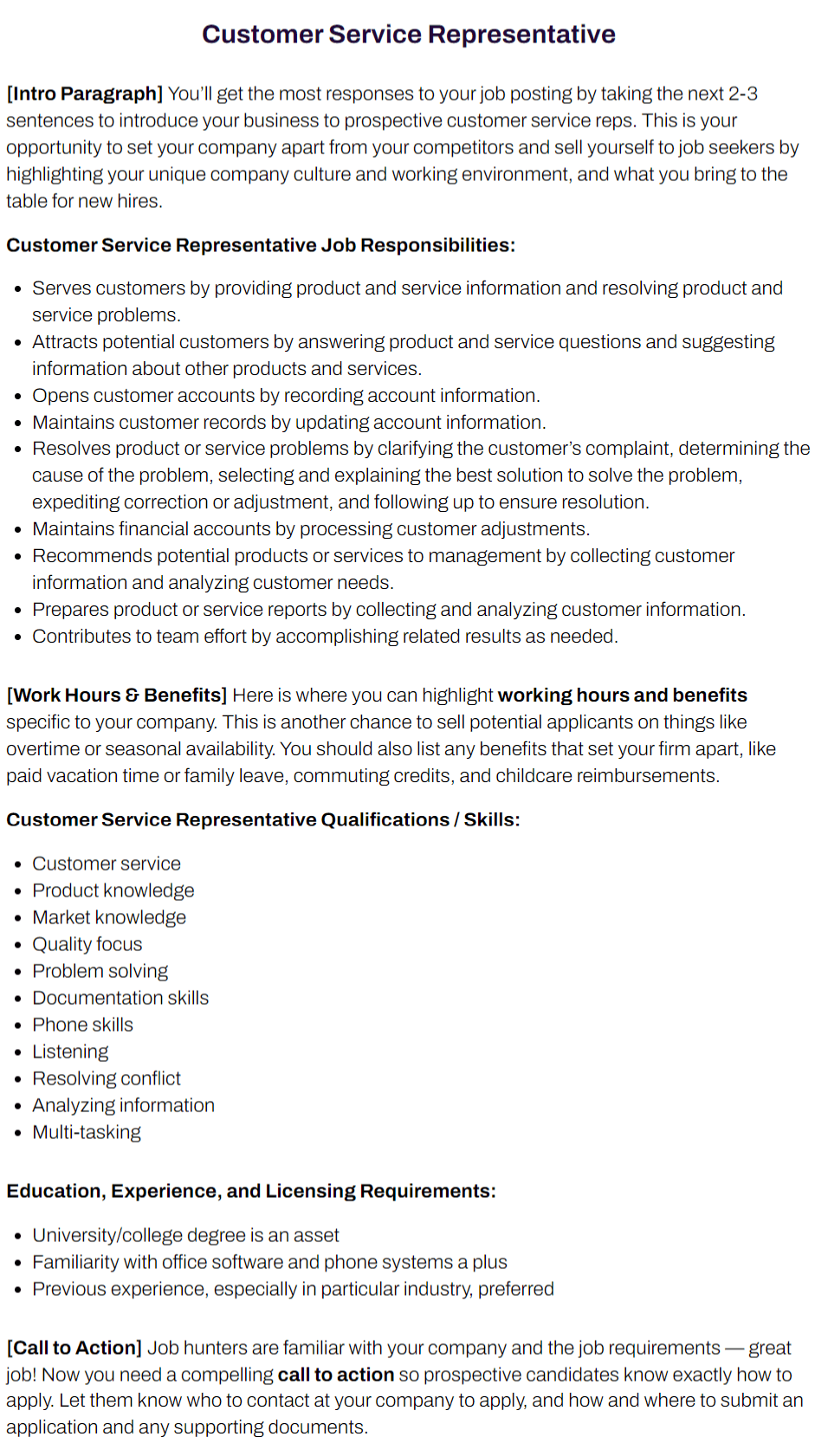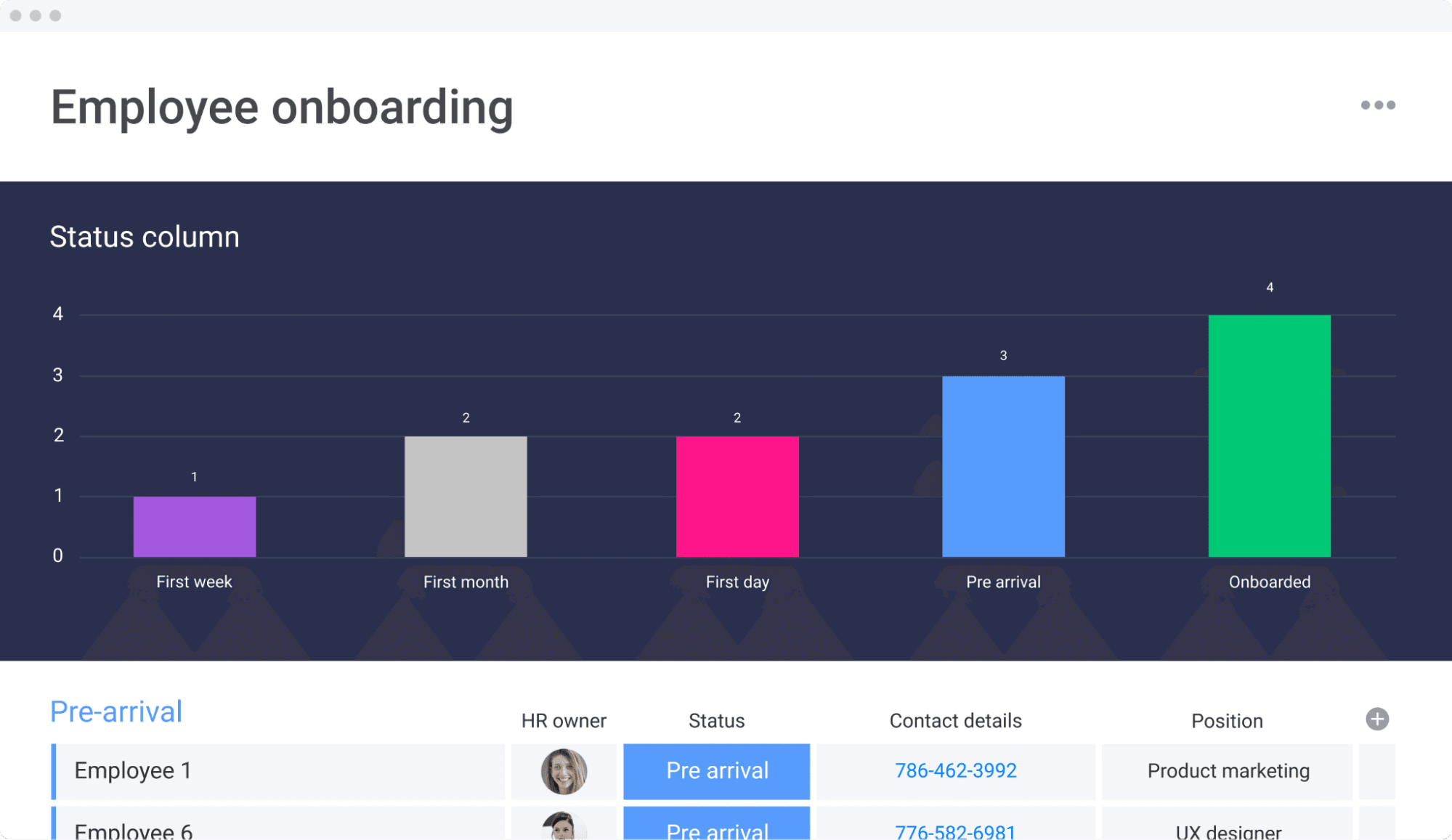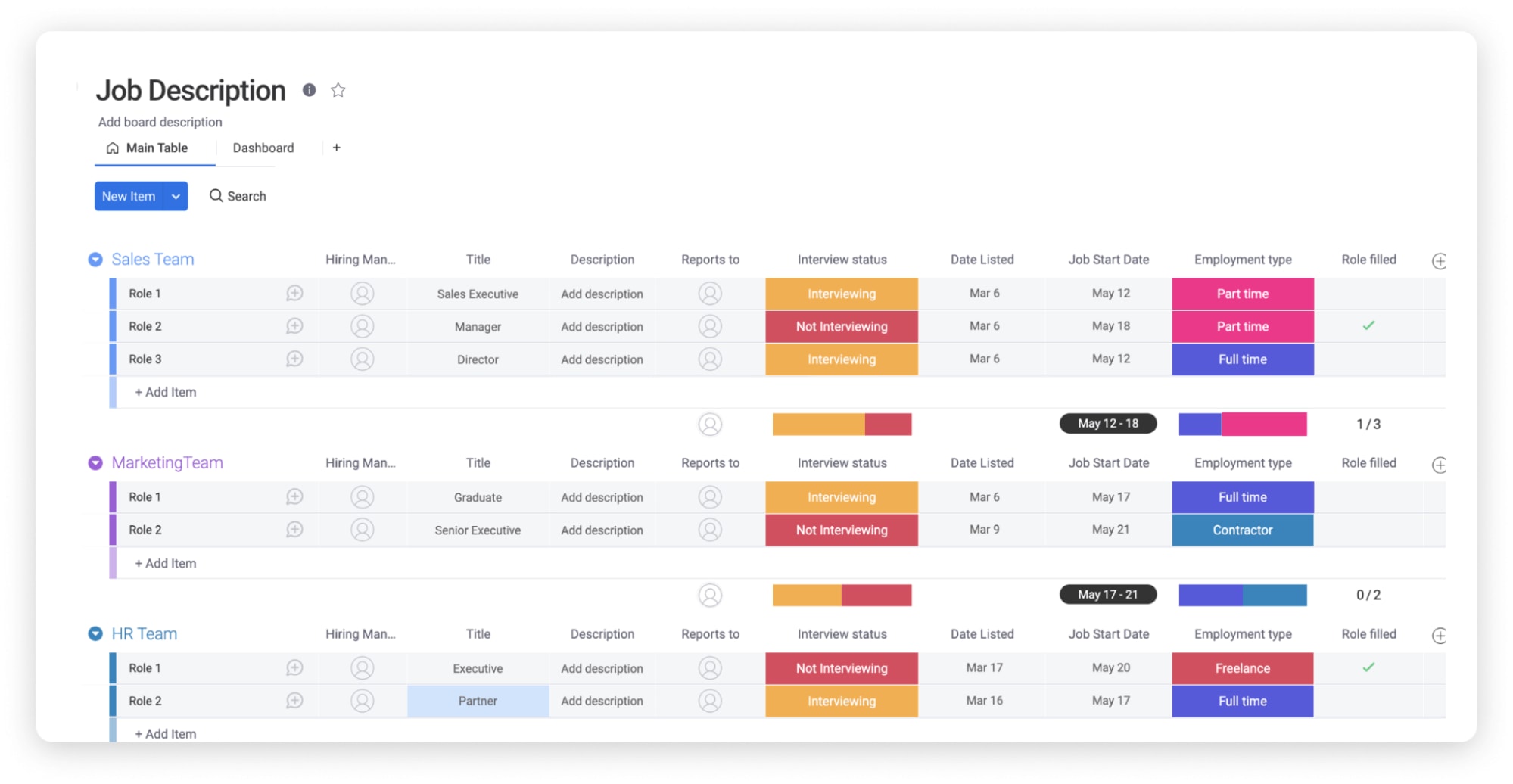
Job description formats tend to vary from organization to organization, even if they are for the same role. This can be confusing for both applicants and the individuals within an organization who want to recruit or refer candidates.
When written correctly, a job description should communicate the overall company culture and how employees fit into that culture. But how do you make sure your job posting is written correctly and includes all the necessary information?
This article will look at everything your job description format should include, from education and experience to skills required. We’ll even share our customizable job description format template that can help you market your open position, no matter the industry.
A job description format is the structure, style, and arrangement of a document stating a company’s open position. Like a template, it is reusable and can be adapted to many different job roles.
A good job format will include details such as:
The function of a job description is to clearly communicate a company’s available position, expectations for that position, and how the company operates on a social and cultural level. Without an effective job description, it can be hard for businesses to find the right person for a specific job.
There are plenty of reasons why a company should develop a concise job description format. As the job description is often the first official document an outsider might see when applying to a new company, it sets the tone for future communications and expectations between employer and employee.
Applying for a new job can be overwhelming, but a well-written strong job description will provide helpful insight into what applicants can anticipate from their new venture.
training plans to help new employees adjust to their new roles. Onboarding any new team member efficiently is key to maintaining a healthy and productive company culture.
There is far more to job description formats than what meets the eye. With a wide range of different formats and descriptions out there, it can be helpful to familiarize yourself with some of the more popular types of job description templates.
The ideal formatting of a job description template depends on the type of job being advertised. For example, if a company is looking to hire a transportation or delivery driver, the template will look considerably different from one designed for a human resources manager.
The aim of a written job description is to shed light on specific job requirements and day-to-day expectations that naturally shift depending on the available position. In order to help you gain a better understanding of what job description formats should look like, here are some examples to get you started.
This product manager job description format includes an outline of the strategies, role requirements, and daily responsibilities of the new product manager. It details that applicants should have experience with product strategy, display leadership skills, and be able to manage teams effectively.

Let’s look at another example. This job description template is designed to fill the role of a customer service representative.
Because this customer service representative document is advertising a job that requires less experience and education, it follows a slightly more generic format. There’s also a stronger focus on highlighting benefits and driving action, since customer service teams typically struggle with high turnover.

A professional job description format should be clear and easy to understand, while also being specific and covering all the important details. This may not be the easiest thing in the world, which is why we’ve created a template that makes writing job descriptions as effortless as possible. It doesn’t matter what the job title is or what industry it’s for.
Want another set of eyes to confirm your job description has everything it needs? With one click, you can create a shareable link for every job description you make. This makes it easy to share with human resources, recruitment, and higher management, making for improved communication and transparency.
The duties and job responsibilities of jobs are constantly evolving, which means you should update your written job description, too. With monday.com, there’s no need to create a job description format every time something changes. Your team can easily access and update safely stored job descriptions in your Work OS. You can also duplicate your existing job descriptions with a click, so that you don’t need to start from scratch with each available role.
Remember how we said a job description can be used to track the performance of a new hire? We equip you with the best tools to do this. With monday.com, you can create a complete onboarding workflow based on what you collect in your job description format template. Create goals, set milestones, schedule check-ins, and track your new employee’s performance over time.

Writing a great job description is just one of many things to do in the recruitment process. There’s also comparing job applications, scheduling interviews, and managing the onboarding process. With monday.com, you have the power to seamlessly manage the entire process for all new company employees on one interactive platform.

With monday.com, teams get much more control over the outcome of their job description templates, allowing for increased precision and productivity. You can use 34 different column types, color-coding, and more to create the perfect template for your company.
Plus, you can even use our recruitment process template — read more in the next section — to set up hiring forms and manage job applicants within the same platform.
This centralized approach also means that there is no need for outsourcing new job descriptions, saving money, time, and energy for everyone involved.
There are many reasons why a company might want to use a job description format template, and monday.com provides solutions for all of them. Here are four other types of templates that a company might need for onboarding, recruitment, or training.
A job application template from monday.com can help you create your own job application form, store job applications in one place, and manage the overall recruitment process with ease. This streamlines the process of creating, monitoring, and distributing job application forms significantly.
Our next-level new employee onboarding template is essential for any company seeking to help new employees adjust to their new workspace. Use it to track the progress of new staff, centralize employee documents, and ensure that they have everything they need to settle in and start learning right away.
Recruitment processing can be tedious, but not with monday.com’s recruitment process template. Its benefits include streamlining job applications, analyzing referral sources, and managing the overall process quickly and efficiently.
A training template is critical for any company seeking to successfully train new employees. They demonstrate an interest in skills development, foster trust between employees and employers, lead to fewer mistakes and create a more empowered workforce.
For example, the template could outline the specific tools and platforms they need to learn, resources they can use, any potential mentors, and more.
Professional job descriptions should include a detailed list of the responsibilities of the position, requirements, and expectations set by employers for potential employees. monday.com’s templates lay out a format that includes all of the information necessary for new employees to perform the job well.
The best format depends entirely on the nature of the job posting itself, but in general, a good job description starts with the job title, a quick description, and then moves on to expected experience/qualifications, required software tools, and daily responsibilities.
In order to write a successful job description yourself, you should study various templates and existing postings to gain a better understanding of what candidates expect.
Once you have this perspective, make sure you cover everything from daily tasks to required tech skills, education, and even specific personality traits. Don’t be afraid of detail — the ideal candidate should be easily able to identify themselves in your job description.
The best way to fill in a job description is to consider more than just the work experience or education you want your candidate to have — also detail any leadership responsibilities, your company culture, and which personality traits will help the candidate succeed in the new job. That’s the only way to find your ideal candidate with a temperament for the company culture.